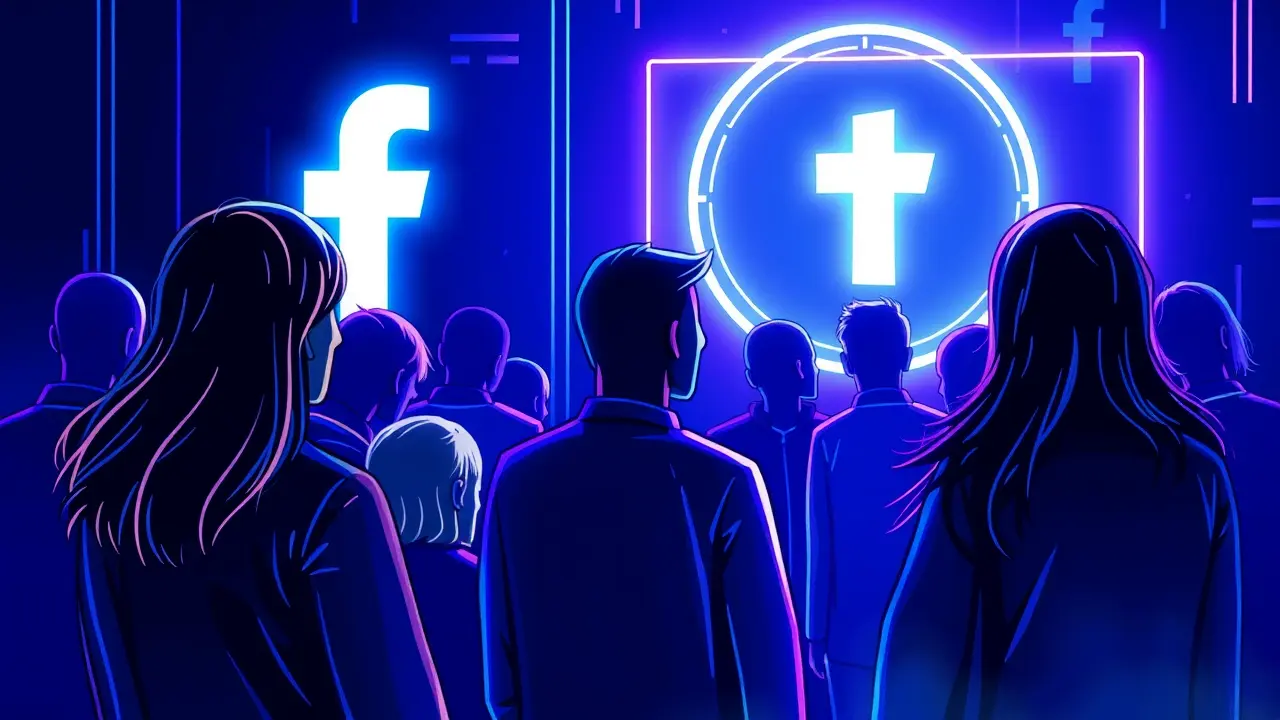
Otherlaw & courtsCourt Decisions
Facebook Private Groups May Become Public, Past Activity Stays Private.
MI
Michael Ross
14 hours ago7 min read1 comments
In a move that feels ripped from the pages of an Asimov novel, where the delicate balance between public good and personal privacy is perpetually tested, Meta's Facebook is reportedly considering a seismic shift in its digital social contract: the potential conversion of private groups into public forums. This isn't merely a feature toggle; it's a philosophical pivot that strikes at the very heart of online community and trust.While the company has been quick to offer a crucial caveat—assuring users that all past activity within these groups will remain shrouded in the digital privacy of their original context—this does little to quell the profound questions this policy evolution raises. We are navigating uncharted territory, a digital frontier where the rules of engagement are being rewritten in real-time.The core of this dilemma echoes the Three Laws of Robotics, but for platform governance: how can a system be structured to foster open discourse without breaking the implicit promise of confidentiality made to its users? Historically, private groups have served as the internet's backchannels—sanctuaries for support groups discussing sensitive health issues, clandestine hubs for political dissidents in oppressive regimes, and intimate circles for family planning or professional venting. The very notion of 'private' was their foundational pillar.To retroactively change the nature of this space, even with the protection of historical data, fundamentally alters the perception and future utility of the feature. It signals that no digital space is permanently sacred, that the walls we build today could become glass tomorrow.This decision cannot be viewed in a vacuum. It arrives amidst a global regulatory maelstrom, with the European Union's Digital Services Act and various national data protection laws increasingly holding platforms accountable for the content they host.Making groups public could be a strategic, albeit controversial, maneuver to pre-emptively increase transparency and simplify content moderation, effectively crowdsourcing oversight to the entire user base. Yet, this utilitarian approach carries significant ethical weight.What of the chilling effect? Knowing that a once-private forum could one day be laid bare for all, including future employers, advertisers, or government entities, will inevitably cause users to self-censor, sterilizing the authentic, raw conversations that make these communities valuable. The assurance that 'past activity stays private' is a necessary but insufficient Band-Aid.It's a logistical nightmare wrapped in a ethical quandary. How does one technically and philosophically delineate 'past' from 'present'? Is a comment from yesterday past, or does the new policy only apply to posts made after a specific, unannounced cutoff? This creates a bizarre, fractured timeline within a single group, where context could be lost and conversations rendered incoherent.Furthermore, the very definition of 'public' is nebulous. Would these groups be indexable by search engines, or merely visible to any logged-in Facebook user? The difference is monumental.Expert commentary from tech ethicists and digital rights advocates suggests this is part of a broader pattern of 'privacy depreciation,' where user data and spaces are gradually nudged toward greater exposure to drive engagement and ad revenue. The potential consequences are a tangled web of risk and reward.On one hand, public groups could democratize information, allowing valuable knowledge from niche hobbyist communities or academic circles to reach a wider audience. It could expose harmful misinformation campaigns that fester in the dark.On the other hand, it poses a direct threat to vulnerable populations. Domestic violence survivors, LGBTQ+ youth in unsupportive environments, and whistleblowers all rely on the ironclad guarantee of privacy for their safety and well-being.A policy shift of this magnitude, even with safeguards, shatters that guarantee's perceived permanence. It forces a societal cost-benefit analysis where the scales are tipped by corporate interest more than user welfare.As we stand at this crossroads, the conversation must extend beyond Facebook. This is a precedent-setting moment for the entire tech industry, a live-fire exercise in balancing the platform's need for scalability and safety with the user's fundamental right to associative privacy. The solution is not simply a technical setting, but a robust, transparent, and user-centric governance framework that treats community boundaries not as mutable preferences, but as foundational rights.
#Facebook
#privacy
#private groups
#social media
#user data
#featured
Stay Informed. Act Smarter.
Get weekly highlights, major headlines, and expert insights — then put your knowledge to work in our live prediction markets.
© 2025 Outpoll Service LTD. All rights reserved.